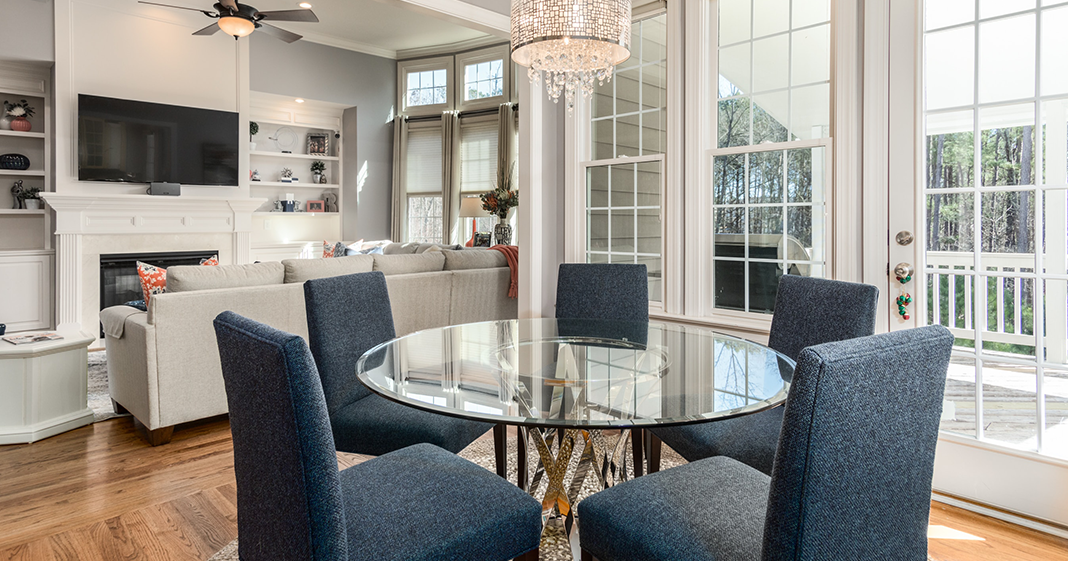What is the average cost of selling a house?
From home arrangements to organizing, commissions to shutting costs, it’s basic to a spending plan for every imminent cost.
Selling a house takes time and cash, commonly significantly more than the vendor expects. While you’re contemplating offering, it’s enticing to get energetic when you see your Zestimate and how much your home’s worth has worked on throughout the long term, yet it’s pivotal to be ready for the covered-up, and at times disregarded, expenses of selling a property.
Property holders spend a normal of seven months arranging and getting ready to sell their home, and 90 days with their home recorded, forthcoming, and shutting. Here are the costs you could expect over the course of that time.
What is the expense of selling a house?
The all-out exchange expenses of selling a house incorporate typical shutting costs as well as planned consumptions for setting up the home available to be purchased, moving your things (and sporadically yourself), and making purchaser concessions.
Shutting costs incorporate down to 6% in commissions (to your representative and the purchaser’s representative), in addition to 2% to 4% in move duties and local charges, lawyer expenses, and land expenses, for example, title protection, HOA moves, and escrow charges.
To know how much cash you’ll get to put resources into your next property, utilize our home deal continues adding machine.
The expenses of selling a house are separated
- Arrangements at home
- Going out
- Concessions from the dealer
- Vender’s end costs
- Land expenses incorporate credit reimbursement, assessments, and fines.
- Expenses of selling a home incorporate home arrangements
While not common shutting charges, coming up next are a portion of the expenses related to selling a home:
Cleaning: Recruit a housekeeper to embrace a profound clean before your most memorable open house or appearance. You ought to likewise get the rugs and windows completely cleaned.
Arranging: As per late information, 48% of ongoing buyers believe home organizing to be incredibly, or very huge. Home organizing can take different structures, however in any event, you ought to clean, rework furniture to boost space, and eliminate individual belongings. Seemingly insignificant details like new shower towels, another mat, blossoms, and treats can likewise have a major effect.
Arranging: On the grounds that your home’s check request is its underlying feeling, you’ll need to cause it to appear to be its best. Plant blossoming plants, construct a way in the event that you don’t as of now have one, rake any leaves, trim the grass, light the walkway, and digging tool snow in the colder time of year.
House enhancements: There are two kinds of house enhancements you might make prior to posting your home: updates to fix or supplant existing frameworks (rooftop, heater, windows, and so forth) and overhauls that add highlights buyers need, fully intent on expanding the deal cost. Ask your representative about what purchasers in your particular district are looking for: Prior to selling, 79% of merchants make home redesigns.
Proficient pictures: As per 68% of home purchasers, seeing proficient photographs of a property is fair to profoundly critical. The speculation is negligible, yet the recompense can be gigantic. Standard expert pictures range in cost from $150 to $200, contingent upon the market. On the off chance that you work with a full-administration posting specialist, they might repay the expense.
Advertising costs: There are costs associated with posting your home on the nearby MLS, yet they are typically covered by your realtor assuming that you utilize one. In the event that you’re selling all alone, known with respect to deal by proprietor (FSBO), you can list your home on free of charge. Assuming that you’re selling all alone, you’ll likewise have to plan for printing fliers, signs, and open-house materials.
Home selling costs incorporate the expense of clearing the property
Moving costs – the expenses related to really going out — are one more type of thing you’ll have to plan for.
Transitory lodging: It’s almost difficult to precisely time the exchanges with the goal that there are no extra lodging costs assuming you’re selling one home and purchasing another. Notwithstanding where you’re going straightaway, most vendors have a month and a half cross-over when they’re actually paying their past home loan in addition to elective lodging expenses.
Utilities: Most vendors leave their utilities on for appearances and open houses while their house is available. In any case, to limit additional charges, switch off utilities as of the date you abandon. Service bills ought to be allocated in light of the date of the offer.
Moving expenses: Moving Expenses could fluctuate significantly depending upon the size of your home, the quantity of assets you have, and the distance you’re moving. Be that as it may, whether you’re embracing a DIY move, recruiting professionals from beginning to end, or in the middle between, there are continuously moving charges, and they oftentimes must be paid prior to shutting, so you’ll require cash close by.
Mortgage holders insurance for empty property: Did you have any idea that your ongoing mortgage holder’s protection contract probably won’t cover your empty property? Assuming that your home will be vacant for a lengthy timeframe, talk with your representative about adding a rider to cover that time.
Normal concessions made by home venders
It’s uncommon to get the best deal and have the option to close without making any concessions to the purchaser. As per the Purchaser Lodging Patterns Report, 83% of merchants make a compromise with the purchaser to work with the selling of their home.
The following are a couple of instances of normal concessions:
Post-assessment fixes: On the grounds that an examination report is seldom great, buyers much of the time look for fixes from dealers. Because of a review report, merchants regularly diminish the deal cost so the purchasers can play out the actual fixes, or require the fixes to be finished as a state of the exchange.
Home guarantee for purchasers: As an impetus for likely buyers, dealers might take care of the expense of a home guarantee. It can not just recognize your home from others available, however, it can likewise support a purchaser’s trust in your property. Contingent upon the inclusion, a one-year house guarantee could cost somewhere in the range of $300 and $500.
Credits for shutting costs: Another concession that buyers much of the time need is that the vendor covers all or some portion of the purchaser’s end charges, really diminishing how much money a purchaser should bring to the end. This cost is deducted from the merchant’s benefit on the home at shutting.
Merchants’ regular shutting costs
Shutting costs for merchants regularly fluctuate from 8% to 10% of the home’s selling cost, and incorporate both specialist commission (around 6% of the deal cost) and vendor expenses (roughly 2% to 4%). With the middle home cost in the US being $217,000, the end costs range from $17,000 to $22,000. These costs, obviously, change contingent on where you live and the worth of your home.
Shutting charges for the vendor include:
Specialist commission: most of your end charges are caused because of commissions paid to realtors. It’s standard that the vendor pays both 3% to their own representative and 3% to the purchaser’s representative. You can frequently arrange a lesser commission with your own representative, or consider using a modest office, that offers confined types of assistance in return for a lower rate.
Move charge: Otherwise called an administration move expense or title charge, this sum changes enormously founded on state charge rates and home deal costs.
Title insurance: Dealers are normally expected to pay for a title protection contract for purchasers, which safeguards their advantage in the home in case of a contested title or continuous obligation. Expenses could go from $1,000 to $4,000 and are deducted from your net benefits at shutting.
Escrow charges: Purchasers and vendors frequently split the expense of escrow benefits (the outsider association that manages the dispensing of monies in the deal), which can go from $500 to $2,000. Extra details for office consumptions, move charges, and public accountant administrations may likewise be incorporated.
Customized local charges: Since you are obligated for your home’s local charges until the day of shutting, you will see a customized expense on your settlement explanation.
HOA expenses: On the off chance that you live locally with a mortgage holder’s affiliation, you’ll be obliged to put in your time, which is customized up to the nearby date, very much like local charges. There may likewise be an expense for moving proprietorship.
Lawyer charges: In the event that you draw in the administrations of a lawyer in your exchange, you should pay them also at shutting. Lawyers are expected to manage closings in the accompanying areas: North Dakota, Pennsylvania, Rhode Island, South Carolina, Vermont, Virginia, West Virginia, and Washington, D.C.
Land expenses incorporate credit reimbursement, assessments, and fines
It’s not all benefit once the end charges are paid. There are a couple of different charges for selling a house that you ought to know about:
On the off chance that you actually have a home loan on the home, a piece of the stopping technique will incorporate paying the equilibrium of your home loan, customized to the date of the offer. You ought to likewise ask your home loan organization to find on the off chance that there is a prepayment punishment.
Capital increases charge: This is a frequently ignored cost of selling a home — until charge time. You’ll get an expense derivation on the benefit you make on the deal on the off chance that you’ve resided in the home for something like two of the most recent five years, up to $250,000 assuming that you’re single or hitched documenting independently, or $500,000 in the event that you’re hitched recording mutually. Assuming you accept you will be dependent upon capital additions charges, either on the grounds that you made more than the predefined sum or in light of the fact that you remained in the property for under two years, talk with your duty consultant about deducting the expenses of setting up the home available to be purchased from your benefits.
The math of a home deal bargain
For instance, consider a $200,000 home. Expect you purchased the house a long time back with a 10% upfront installment ($20,000). Due to appreciation and home redesigns, you can now sell the house for $220,000. Here is a best guess of your expenses:
| Original purchase price | $200,000 |
| 10% down payment | $20,000 |
| Loan amount | $180,000 |
| Current mortgage balance | $165,000 |
Most likely transaction costs
| Home preparations | $5,000 (Includes common updates like staging, carpet cleaning, and landscaping) |
| Commissions | $13,200 (assuming 6%) |
| Transfer tax | Varies widely by location |
| Prorated property tax | Varies widely by location |
| Utilities | $258 (1.5 months of utilities, based on average monthly utilities from the US Department of Energy) |
| Escrow | $1,000 (seller’s half) |
| Title insurance | $1,000-$4,000 |
| Sum of most likely costs | $20,458-$23,458 |
Possible transaction costs
| Buyer concessions offered during negotiation | $2,200 (1% of the sale price, on average) |
| Optional pre-inspection | $250-700 (depending on the size of the home) |
| HOA fees | $200-$400 (estimated based on paying 1.5 months of dues, plus transfer fee) |
| Attorney fees | $500-$1,500 |
| Temporary housing | $2,000 (1.5 months at the U.S. average rent of $1,442 a month) |
| Sum of possible costs | $5,150-$6,800 |
Total costs of selling a house
| Sale price | $220,000 |
| Current mortgage balance | -$165,000 |
| Equity (sale price minus loan balance) | = $55,000 |
| Most likely transaction costs | -$20,458-$23,458 |
| Possible transaction costs | -$5,150-$6,800 |
| Net proceeds | $24,742-$29,392 |
| Transaction Costs | 44-53% of equity spent on the transaction |









Leave a Reply